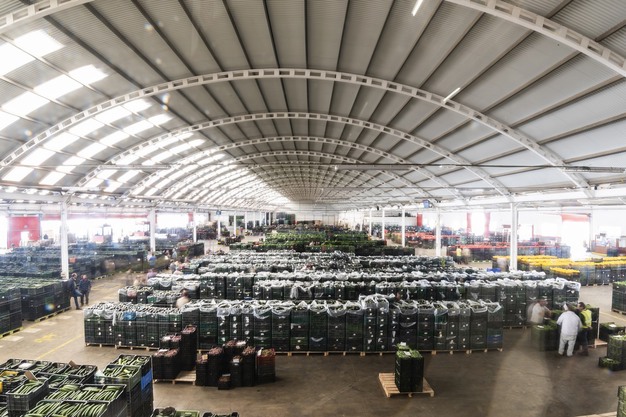The winter cucumber harvest is coming to a close in the Spanish province of Almeria. "Across the region, from Guainos, one of the last towns in Almeria, to Motril, the harvests are nearly complete, and there will be a brief gap of a couple of weeks until the new plantings begin," says Juan Manuel Andújar, from La Unión.
However, price drops have again been reported. The average price of French cucumbers now stands at €0.49/kg, that of Spanish cucumbers at €0.95/kg, and that of Almería cucumbers at €0.74/kg. "Supposedly, the Netherlands is starting this week, but there isn't that much cucumber available to justify the low prices we're seeing, and there will be a mismatch between the price paid at the auctions and what the retailers are paying."

"Moreover, German retailers have announced they want to stop working with Spanish cucumbers this week, as they are going to start shifting to the Dutch supply and will have promotions," says Juan Manuel. "We are going to find ourselves in a tricky position, with limited margins at this time of lower harvests, coinciding with the moment of the cycle change in the greenhouses."
"When the Netherlands enters the market, its initial volumes are not significant; they even buy cucumbers from Almeria to fulfill their own contracts with the retailers, acting as an additional link in our chain. Therefore, they generally set the prices lower than they should at the start of a campaign with low volumes."
Regarding eggplant, the interprofessional organization Hortyfruta activated once again last week the rule extension that prohibits the marketing of second-class produce due to low prices, which are jeopardizing the profitability of the farms. However, after 7 days with the measure in place, last Saturday, the average price of long eggplant stood at €0.38/kg.
"On the one hand, eggplant is very sensitive to temperatures, and the production grows when it gets warmer; on the other hand, the demand has not been the highest in recent years," says Juan Manuel. "It's clear that it hasn't been as cold as other winters in Spain, Greece, Italy, or Turkey, countries where the production is strong and are closer to our destination markets, and this has been noticeable. Moreover, it must be taken into account that in Europe, eggplant is more of an ethnic product, more often consumed by Mediterranean people, and that grocery shopping has become more expensive in all countries, and people are holding back on their spending."
Zucchini prices also dropped at the latest La Unión auction and have remained "stable, but not very high for the last 3 weeks," ranging between an average of €0.31/kg for large zucchini and €0.51/kg for the white zucchini, at a time when "there is a large supply."
Tomato prices have not been high either, ranging between €0.33 and €0.57/kg after recording some increases. However, Juan Manuel Andújar says that "what we've had in the previous 2-3 years was an anomaly because normally, the production peaks in January and prices drop. In my opinion, they might recover somewhat in March, coinciding with an increase in consumption with the arrival of spring."
"Meanwhile, bell peppers are recording the best prices. Last week, they had dropped a bit due to the plantings being more spaced out this year, and although there was a volume shortage at the beginning of the campaign, now the supply has clearly increased." Nevertheless, pepper prices still significantly exceed 1 euro in the latest data shared by La Unión, with average prices of €1.35/kg for the red Lamuyo, or €1.57/kg for green bell peppers. "Given this year's situation, we won't be seeing prices of €3/kg, as was the case in recent years, and I also do not expect significant fluctuations between now and the end of the campaign unless a cold wave comes and temporarily brings the production to a halt."
 For more information:
For more information:
La Unión
Pol. Industrial La Redonda, N-340, Km 144
04700 El Ejido. Almeria, Spain
Tel.: +34 950 580 800
https://launioncorp.com
